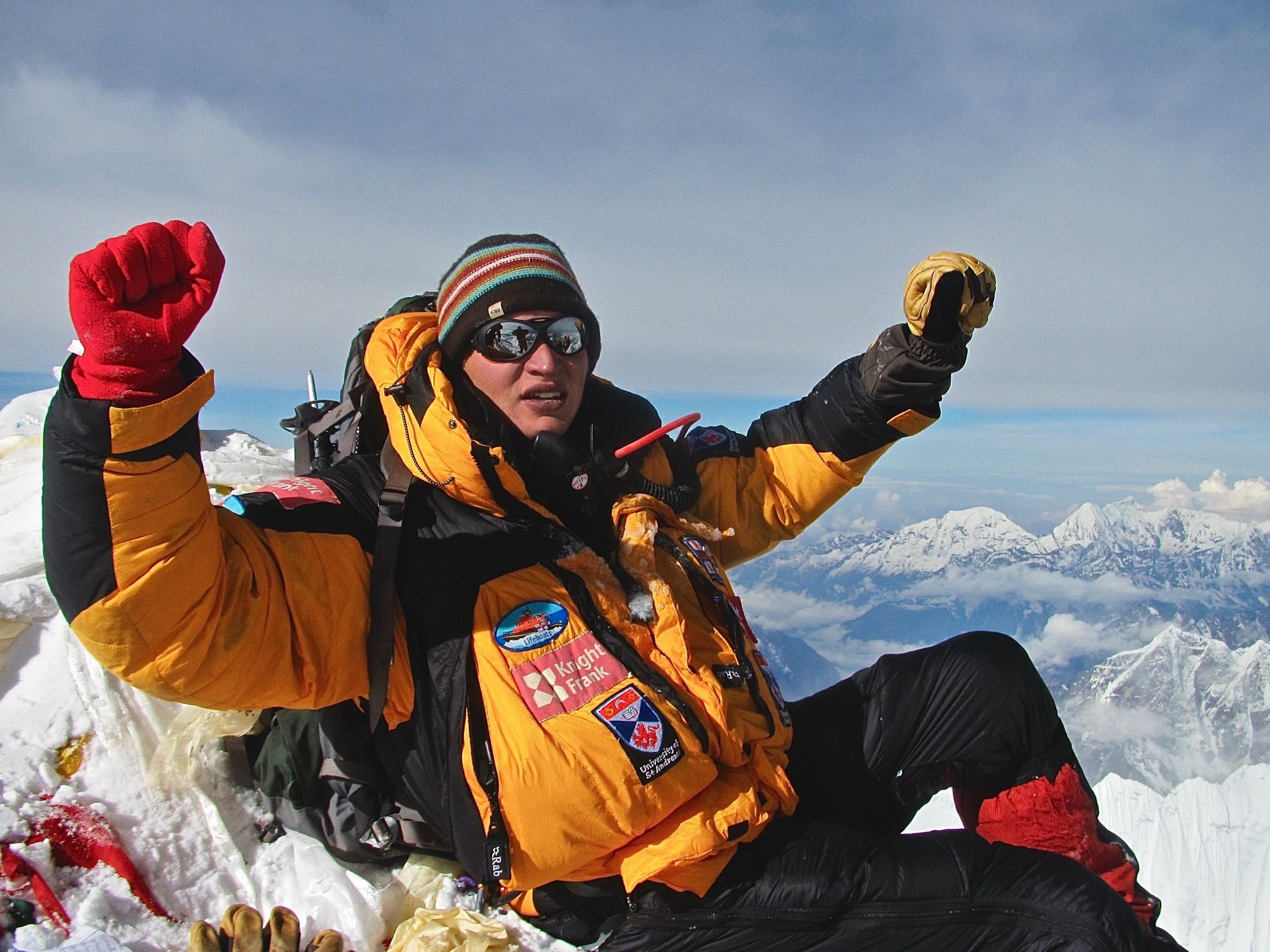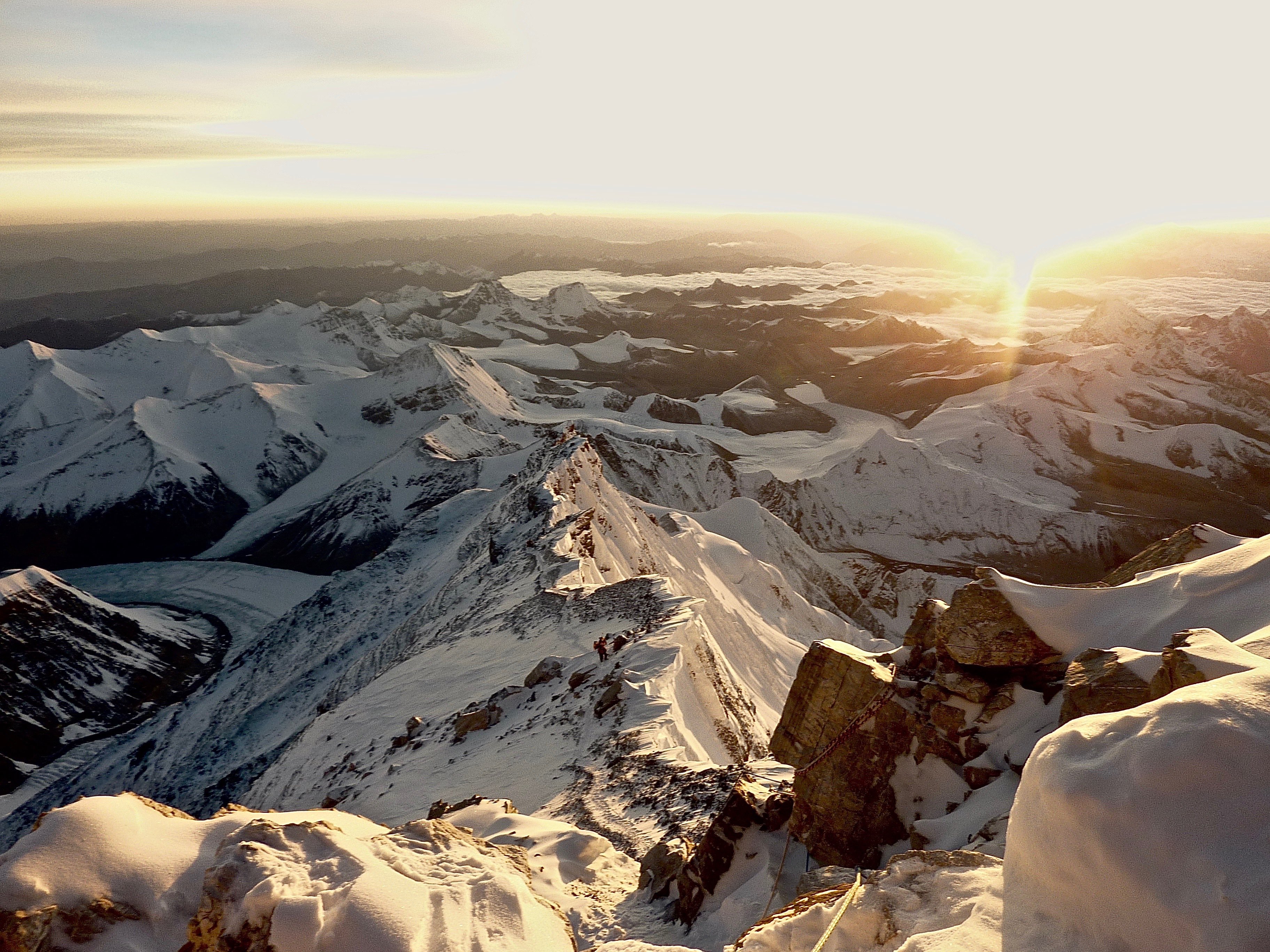
We caught up with Geordie Stewart, author of ‘In Search of Sisu: A Path to Contentment Via the Highest Point on Every Continent’. He opened up about being the youngest Brit to reach the ‘Seven Summits’, his battles with mental health and about the Finnish concept of ‘Sisu’.
Hi Geordie. Thanks for chatting with us, and congratulations on the book. So, what’s it about?
Well, ‘Searching for Sisu’ is about my attempt to become the youngest Briton to summit the highest mountain on every continent, otherwise known as the ‘Seven Summits’. It’s about my struggles on and off the mountain and is an exploration of the Finnish concept of ‘Sisu’, meaning grit, courage and determination.
What lead you to want to tackle all ‘Seven Summits’?
So, I was 17 and I was supposed to be revising for my exams. I was given Bear Grylls’ ‘Facing Up’ by my dad. I genuinely had no climbing experience which a lot of people find hard to believe. I had been reading about Everest, so it seemed like a great target to set my sights on. It seemed like a formidable challenge, a fantastic way to see the world and would hopefully make me feel like I have achieved something.
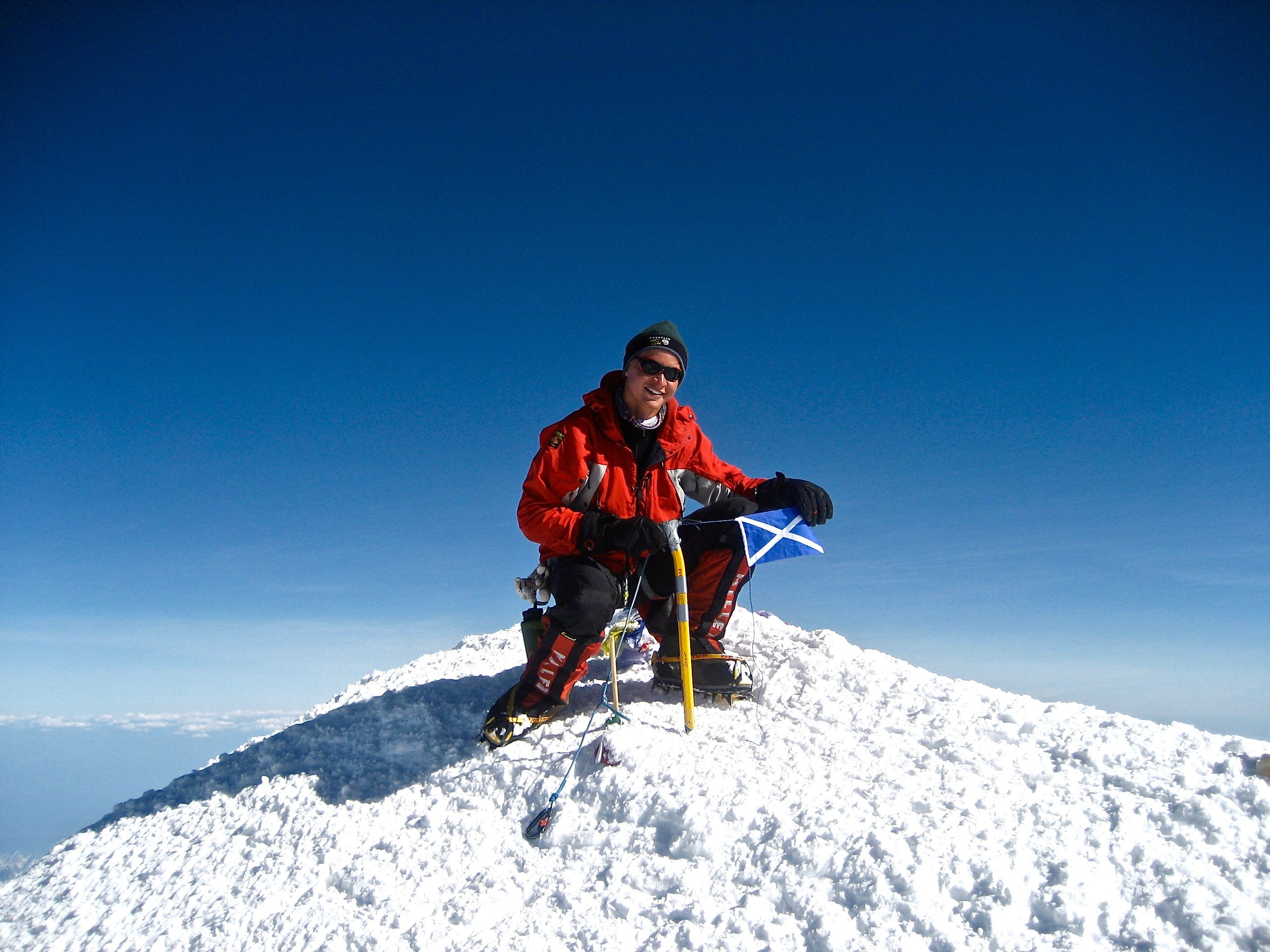
How many people did you tell about your plan?
I was pretty coy, as it was such a ridiculous plan for someone with no climbing experience.
If I had been climbing for 10 years or something, it would have been slightly different. I didn’t want to tell anyone because it seemed a bit farcical. I told my family, and after each expedition, it became a bit more real. But I still didn’t feel like I had enough credibility to say “I want to go and Climb Everest.”
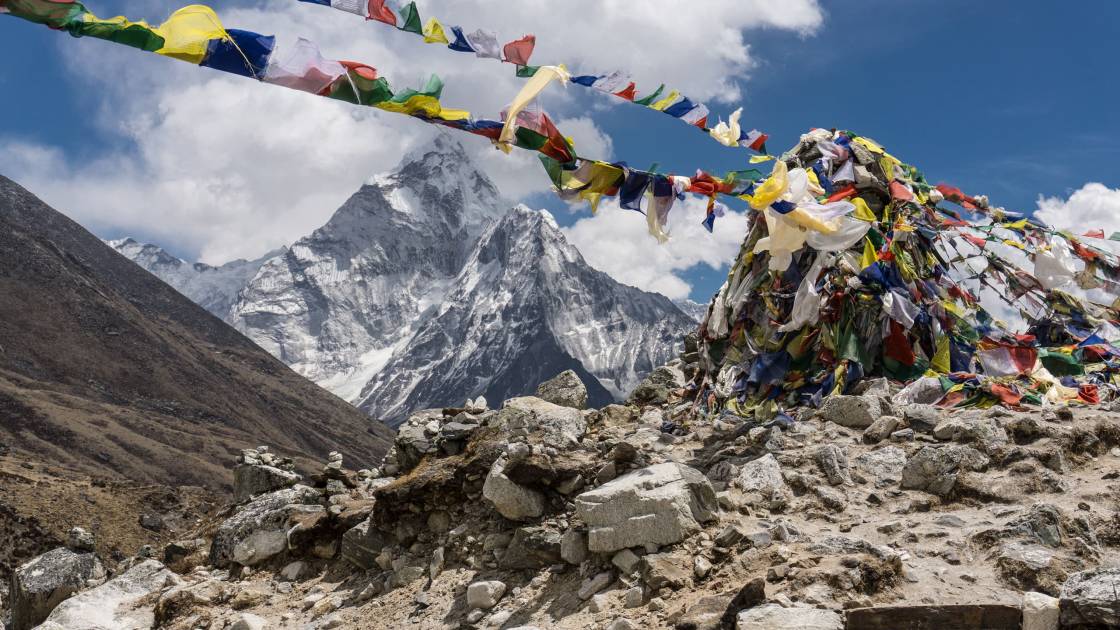
In the time leading up to any of the summits, did you ever doubt your mission?
The problem with a big ambition like that is that it’s not just one challenge, it’s seven. The hard part is getting to basecamp, and the summit success rate of all seven mountains is incredibly low, accumulatively. Maintaining focus is hard. It’s so easy to get distracted, whether that be by your finances or your social life.
But saying that, I don’t think I would have had the social support if I hadn’t engaged with university life and I don’t think I could have completed the summits without the social network I created as a result.
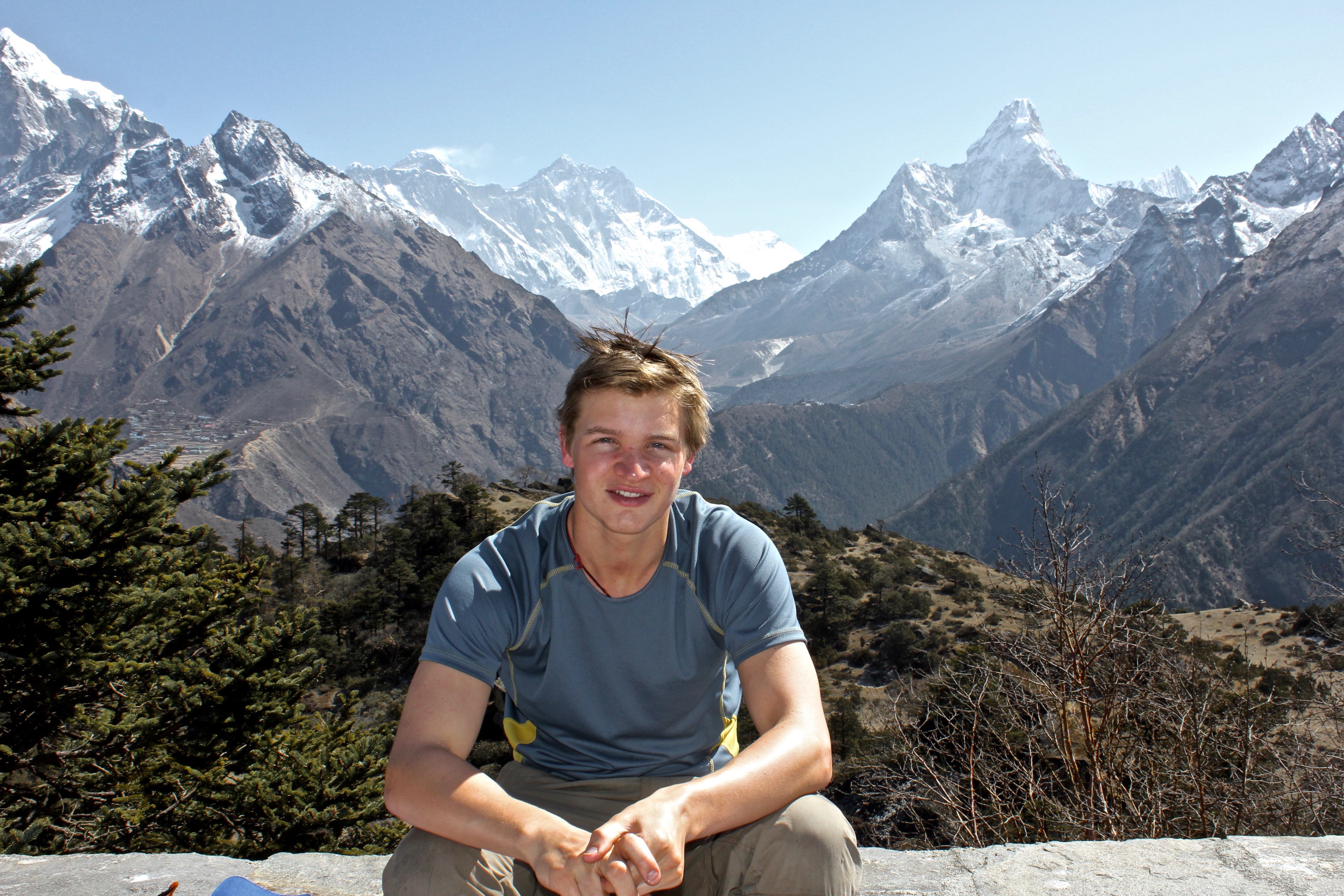
I can imagine. And I understand you conquered all the summits by yourself?
I was always by myself, yes. But I still don’t think I could have achieved what I did without my friends and family. You need someone who you can train with or vent with or whatever it is. Otherwise, it would get really lonely. It’s so important to go ‘tête-à-tête’ with friends, as they always came up with ideas that you wouldn’t have thought of.
Do you remember moments of loneliness up the mountains?
On Everest, certainly. I was really young, to be honest. I sometimes felt like I really needed a break, and I needed a companion. In 2010, I was ill during the Everest expedition as well. Sometimes I felt like I missed everyone.
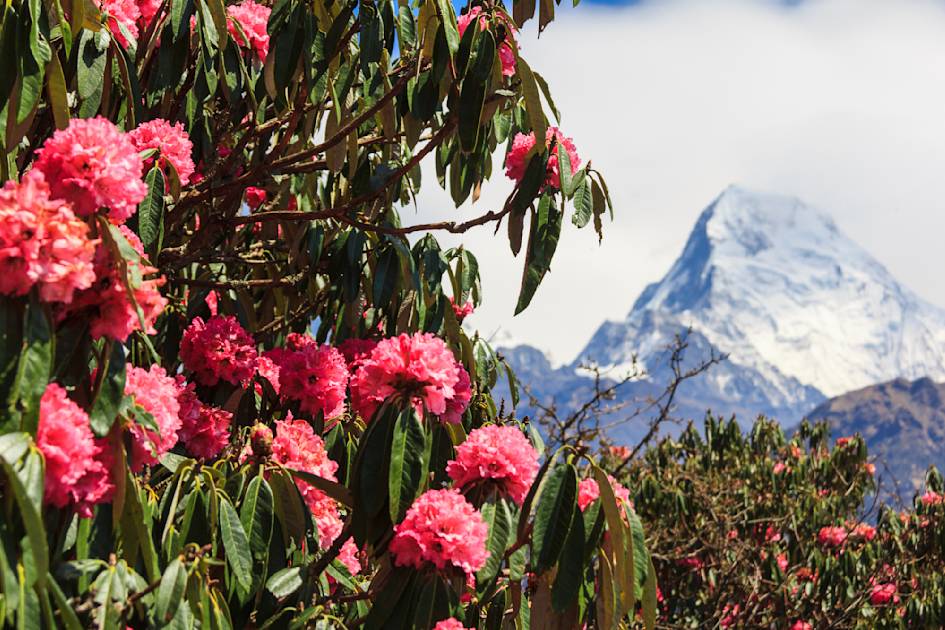
The book’s prologue opens with a pretty harrowing account of your first, unsuccessful Everest attempt. Can you give us a glimpse of what that day was like?
Well, it’s important to mention on that first attempt, I was only 150 metres away from the top when I turned around. Everything about that day was a really difficult personal struggle. I was young, I was alone and having to endure a tremendous physical hardship. I felt like I matured a few years on that day.
You have the decision of “I’m 150 metres from the top, I don’t have any radio, I don’t have any teammates, what do I do?”
I set off from high camp, and I was pretty physically spent that day anyway. My head torch cut out, I was trying to guide by moonlight. One of my teammates was starting to go blind. He thought the weather was closing, but it was clear blue skies.
My sherpa got altitude sickness and was throwing photos of his family off the mountain, saying that he was going to die. Another teammate was completely delirious, forgot his name and was speaking to his rucksack like it was a human being. I went up the hardest part of the track and saw a dead body.
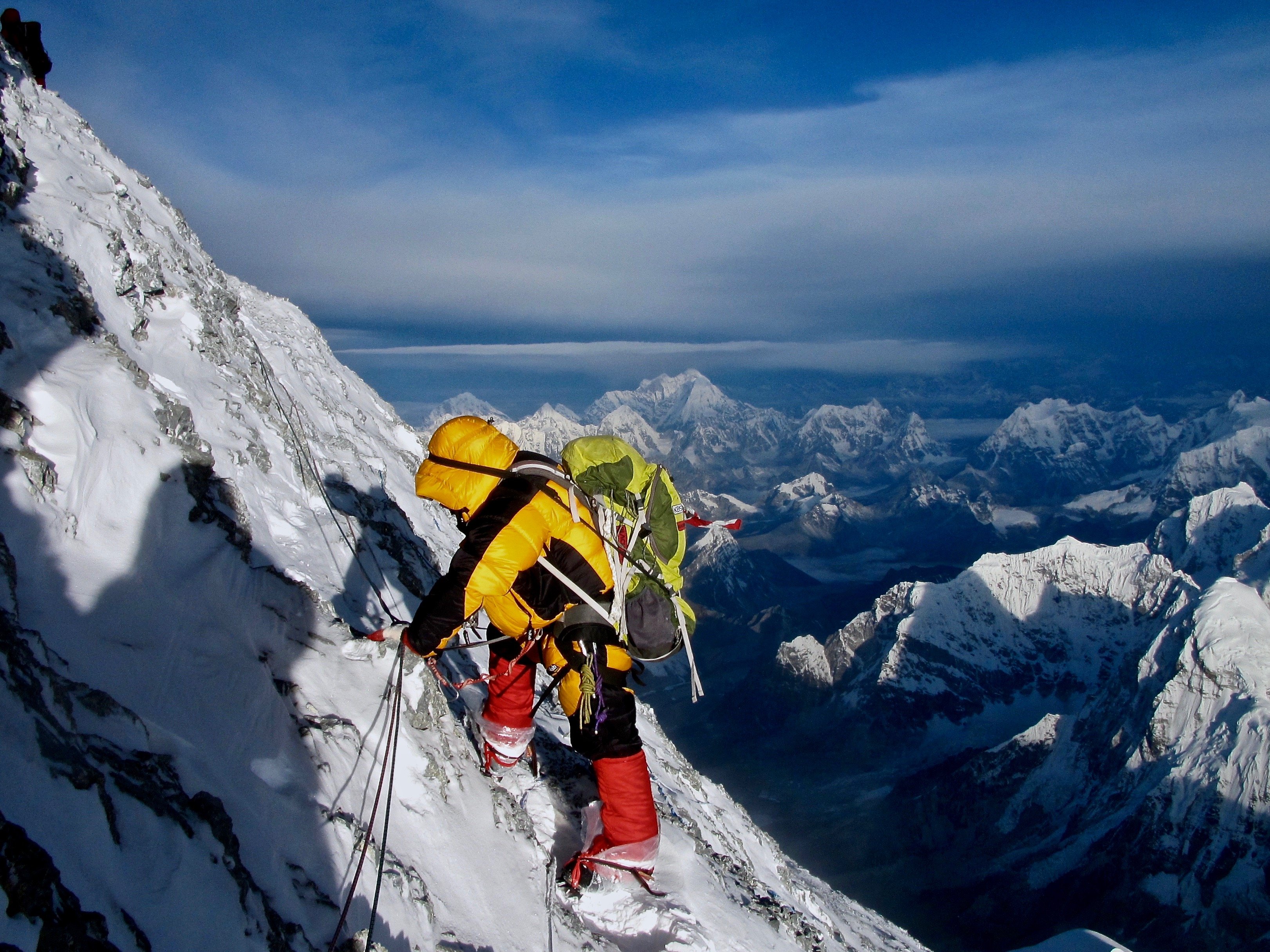
I was starting to realise just how vulnerable I was. I was by myself and I had no real means of support. The top was 150 metres away. If I had just carried on going, I would have summited. I genuinely can’t say whether I would have made it down. That’s why it was such a wise decision doing what I did.
And it shouldn’t have been. Four out of twenty people summited, which is staggeringly low. If you get to high camp, there’s a pretty high chance you’ll summit, but for one reason or another, it went to sh*t. There were benign conditions on that day. There was no storm. It should have been easy. It was a really intense physical and emotional life experience that really fast-forwarded my emotional maturity.
When I was writing about the day, I had forgotten that my friend had fallen into a crevasse, because there was so much else that went on. One of your teammates falling in a crevasse and having to be picked out of an ice-block was extraordinary. But because the rest of it was so ridiculous, I had completely forgotten about that.
Good luck condensing that into an article.
So it seems like those are the times that you needed an extra reserve of motivation. Where did you first hear about the concept of ‘Sisu’?
I was in Finland four years ago. I went wild camping and hiking. I bumped into a Swedish couple who said to me “You have a lot of Sisu.” I just thought “Ok, great. I don’t really know what that means.” They just said, “It’s a bit like courage.” I just thought it meant physical endurance. I didn’t overly think about it for the next few years. But I revisited the concept when I was writing the book, and I couldn’t quite think of a title. A friend had written a book told me: “It’ll come to you.” It was quite a frustrating piece of advice, until, low and behold, it did come to me. And that word was everything.
During the whole journey, at home and up the mountains, you’re constantly looking for something to give you a boost and give you the resilience to carry on. And so this word really summed it all up to me.
What do you understand ‘Sisu’ to mean now?
My initial understanding was that it was about resilience on a mountain. The image of a polar explorer carrying on through the blustery conditions sprung to mind. But since then, I’ve spoken to the experts in this field, and my understanding has dramatically deepened. They completely agree with the conclusions I’ve come to. I think we all have a sense of Sisu, but we just don’t need it most of the time, because we live in a comfort zone. But for the moments in your life that require you to break out of your comfort zone, you need that extra reserve of courage in the face of unknown outcomes. If you want to quit your job, start a new relationship or climb Everest, it requires a willingness to face the unknown, it requires ‘Sisu’.
The other side is when life throws tremendous barriers in your way. Say you get fired, your family break up or you develop a mental health disorder. That requires Sisu to make it through.
Sisu is a bridge from where you are to where you want to be. It’s finding a sense of calm when you’re faced with adversity and murkiness.
Do you think that reminding people of their innate resilience can help them to step outside of their comfort zone?
The ‘Sisu’ bit is having the courage to go for it. Life gets more exciting and fulfilling when you go outside of it. When you’re filled with nerves and uneasiness, you need to be reminded of your innate ‘Sisu’ to step outside of it. Being reminded of our natural resilience as a species is critical to overcoming psychological barriers that you face.
To take the first step towards your end goal requires ‘Sisu’, and I want to remind people that if you can take that first step, you can take all the necessary steps afterwards to get to where you need to be.
In your book, you mention some of the mental health issues you’ve faced. How has the concept of ‘Sisu’ helped you to overcome your demons?
For me, writing that book took a tremendous amount of ‘Sisu’. Writing that book was the hardest thing I’ve done. Forget the logistics, emotionally it’s hard to combat something that you’ve kept wrapped up for so many years. Writing about it at length makes you feel vulnerable.
It’s much more comfortable to put a lid on your difficult emotions, so the cathartic process of opening up about my mental health issues required the courage of ‘Sisu’. The ‘Sisu’ word works perfectly because it encompasses both my physical and mental struggles during my ‘Seven Summit’ campaign.
I had bulimia, a particularly toxic mental health issue. Eating is a fundamental part of your life. You eat to survive. If every relationship you have with food is a battle, it can make life very overwhelming. For one reason or another, everyone finds their way of getting through these things. For me, those mountains were intrinsically linked with those mental health issues I had when I was younger.
So almost the process of writing the book and therefore confronting your issues required more ‘Sisu’ than reaching those seven summits?
Well, that’s exactly it. The biggest problem with a lot of mental health disorders is that it’s so hard to open up about them, and most people don’t.
The whole process was incredibly cathartic. Even though it opened up some wounds that I thought had probably healed, by working through them in the book I was able to replace a surface level plaster and allow the wound to properly heal.
It’s part of our generation that we are more open to talking about these things. People are happy to discuss depression because they get it. But there’s something about eating disorders that people can’t engage with. But it’s so unbelievably common. It’s more common than people think. I want people to read the book who have had a similar trauma, as I want them to understand that you aren’t alone. Sometimes what you need is reassurance that you aren’t on your own little path to self-destruction.
The message of the book is that it’s ok to dream and it’s healthy to have a big ambition. It’s also saying that it’s ok to be open and discuss your mental health problems, as that’s the only way you grow through it. If people can absorb these two things from my book, then I’ve done my job.
Thanks for speaking with us Geordie!
Geordie now spends his time adventuring, public speaking and promoting personal health. His book is available now on his website.
You can trek through the Himalayas or climb Kilimanjaro with our handcrafted range of itineraries with the best local guides.
*Photo credit: Geordie Stewart.
Feeling inspired? Check out our guided treks to Everest Base Camp.

